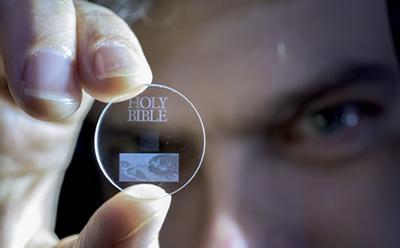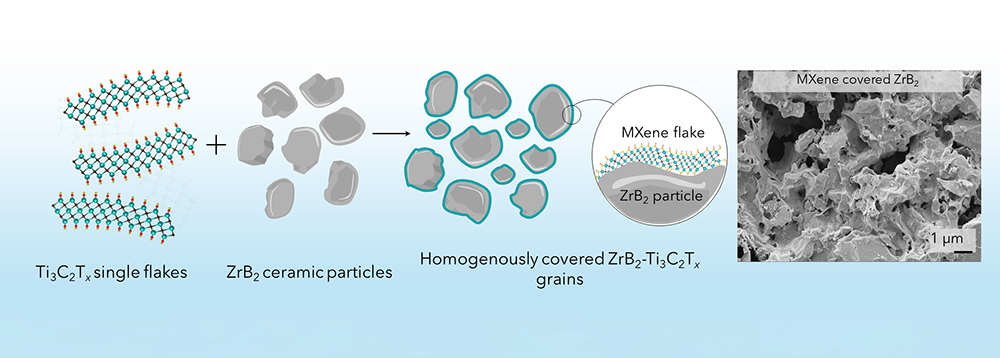
[Image above] The Holy Bible stored as 5-D data in glass. Credit: University of Southampton
We generate a lot of data. A lot.
But few of us think about how that data is stored. And how it will be preserved in the future—wait, will it be preserved in the future?
To make sure that our data outlives us, some have turned to DNA to be responsible for more than just our genetic makeup and instead bear the burden of our data, too.
But researchers at the University of Southampton (U.K.) have a data solution that relies upon a more stable material—glass. They have developed a glass-based 5-D data storage method with incredibly high capacity and a near-unlimited lifetime.
Using femtosecond laser writing, the Southampton researchers create three layers of nanostructured dots, each 5 μm apart, in quartz. The size, orientation, and 3-D position of each nanodot—that’s 5-D—store the data. To retrieve the data, a polarizer and optical microscope read the nanostructures by measuring disruptions to light polarized through the glass.
Ceramic Tech Today previously reported on the researchers’ development. But at that time (2011), the storage capabilities of the developing tech were only at about 50 GB. Not any more.
According to a new Southampton press release, “The storage allows unprecedented properties including 360 TB/disc data capacity, thermal stability up to 1,000°C, and virtually unlimited lifetime at room temperature (13.8 billion years at 190°C), opening a new era of eternal data archiving.”
And with the promise of eternal archiving, the technique seems poised to make glass the new gold.
Watch the ultrafast laser in action in the short video below.

Credit: Optoelectronics Research Centre; YouTube
Because of the possibility of storing so much data in such a compact package, the technology could be used to archive large collections of data, such as in museums and libraries. To demonstrate that value, the Southampton researchers wrote digital copies of the Universal Declaration of Human Rights, Isaac Newton’s Opticks, Magna Carta, and Kings James Bible into bite-size pieces of glass.
Hitachi is reportedly also well on its way to developing a similar commercial glass storage method.
So the question is—what data would you choose to live on forever?

The Universal Declaration of Human Rights recorded into 5-D optical data. Credit: University of Southampton
Author
April Gocha
CTT Categories
- Art & Archaeology
- Glass
- Material Innovations
- Nanomaterials
- Optics


